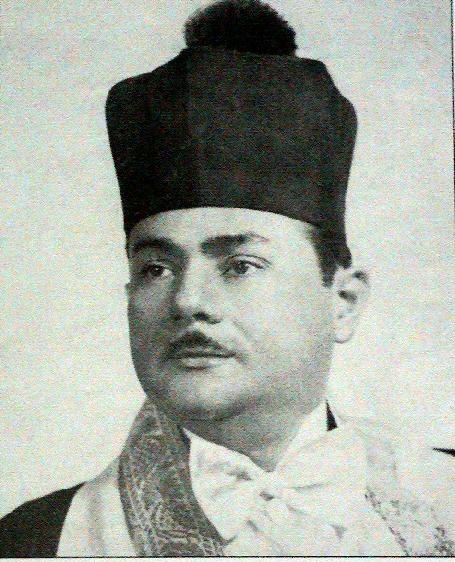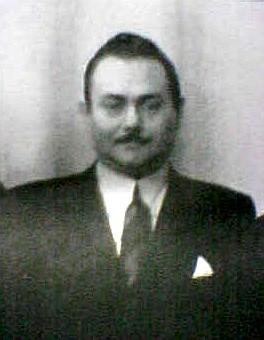Moshe Koussevitzky
The composer of the piece is unknown, as so often in cantorial music. The problem with is that composers are not equally valued as in classical music. Much of the material is traditional, but just literally material, almost never entire prayers or songs, but just parts of them, single phrases, while the connection between those "crucial phrases" is existing in several or even many different versions by different composers – whose names are normally not quoted. Often, it's the cantor himself who is also a composer and singing his own version; but not every cantor was also composing (Koussevitsky and Sirota, as far as I know, were not). And of course, particularly the famous composers such as Rosenblatt sometimes wrote entirely new pieces to the old texts, without using the traditional musical material. The problem is worsened by the obvious fact that the texts are always the same – the prayers of Jewish liturgy; and worsened further by the highly different transliterations of Hebrew. So a song's title, even if you happen to identify it (cf. Ovinu malkenu, Avinu malkenu, Oivinu molkeinu... always the same prayer), says nothing at all about the composition; the important prayers have been set to different music a dozen of times and more.
He was born Mosze Kusewicki into a Polish-speaking Jewish family in Belarus; his father was a music teacher and his mother a pianist; also his three brothers David, Jacob and Simcha became cantors. From 1920, Moshe was a cantor in Vilnius, first at the Choral Synagogue, then at the Great Synagogue from 1924. In 1927, he was chosen as Gershon Sirota's successor by the Tlomackie Synagogue in Warsaw. He became a big star now, singing concerts internationally: Brussels, Antwerp, London, Vienna, Budapest, New York (Carnegie Hall, 1938), Palestine (1934 and 1936). Under the German occupation, Moshe and his family were arrested by the Gestapo to be sent to the Treblinka concentration camp. Fortunately, they were saved by the Polish underground movement who enabled them to escape to the Soviet Union. He stayed there throughout the Second World War, singing concerts throughout the country, and performing in opera, for instance in Tbilisi; roles he sang included Duca, Cavaradossi, Shujskij and Éléazar. He sometimes used the name Mikhail Kosvitskij in the USSR. In 1946, he returned to Poland only to find devastation and a broken Jewish community. He managed to obtain a visa to visit England. On arrival in London, he was re-united with his mother and three brothers. A concert tour of the main Jewish centres in Great Britain concluded with a concert at the Albert Hall, London on December 21st, 1946 before an audience in excess of ten thousand. Moshe and his family then travelled to New York, arriving on January 31st, 1947, to be welcomed by great numbers of admirers. In 1952, Moshe accepted the position of chief cantor of Temple Beth El of Boro Park, Brooklyn, one of the largest orthodox congregations in America; the position as a cantor there had formely been occupied by the by Berele Chagy and Mordechai Hershman. There he remained until his death.
Reference 1; reference 2: Akiva Zimmermann:
Moshe Koussevitzky (1899–1966) in Vilna, Warsaw, and Russia, in: Polin. Studies in Polish jewry, vol. 32, Liverpool 2020.
I wish to thank Benjamin Sloman for the Rigoletto recording. I wish to thank Vladimir Efimenko for the pictures. I wish to thank Igor Milner for the Pagliacci recording (in Italian). |

